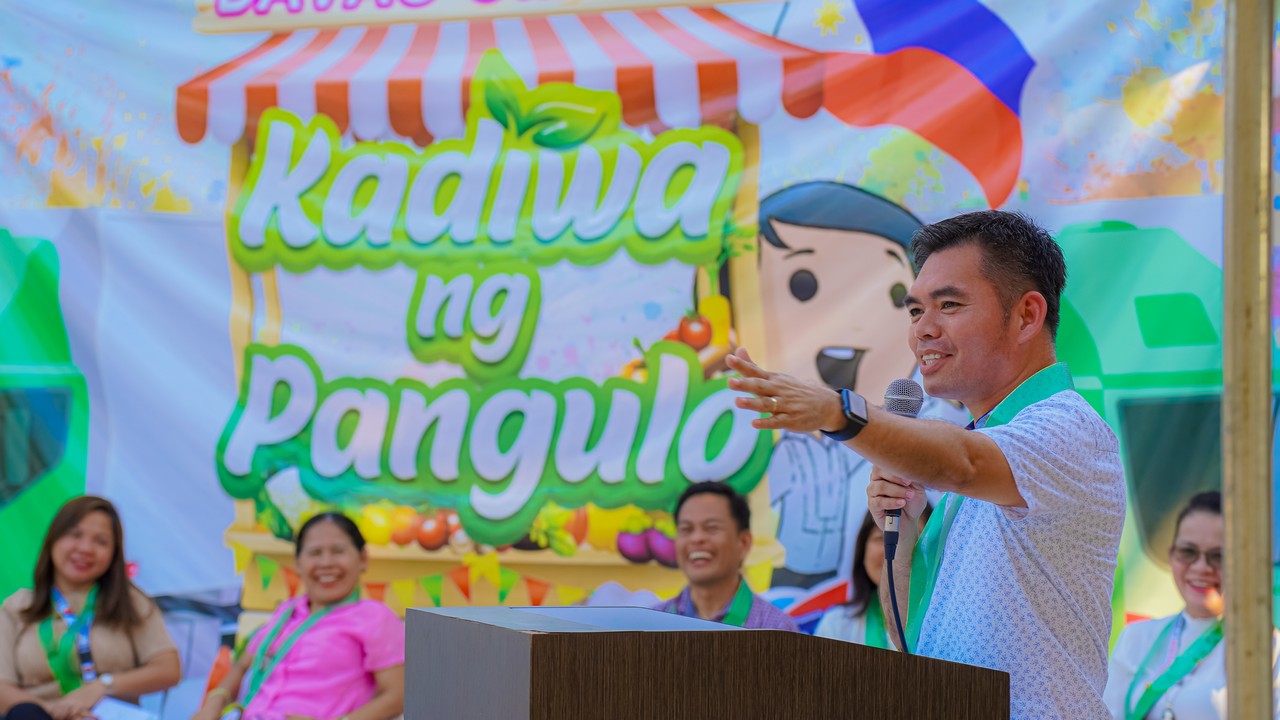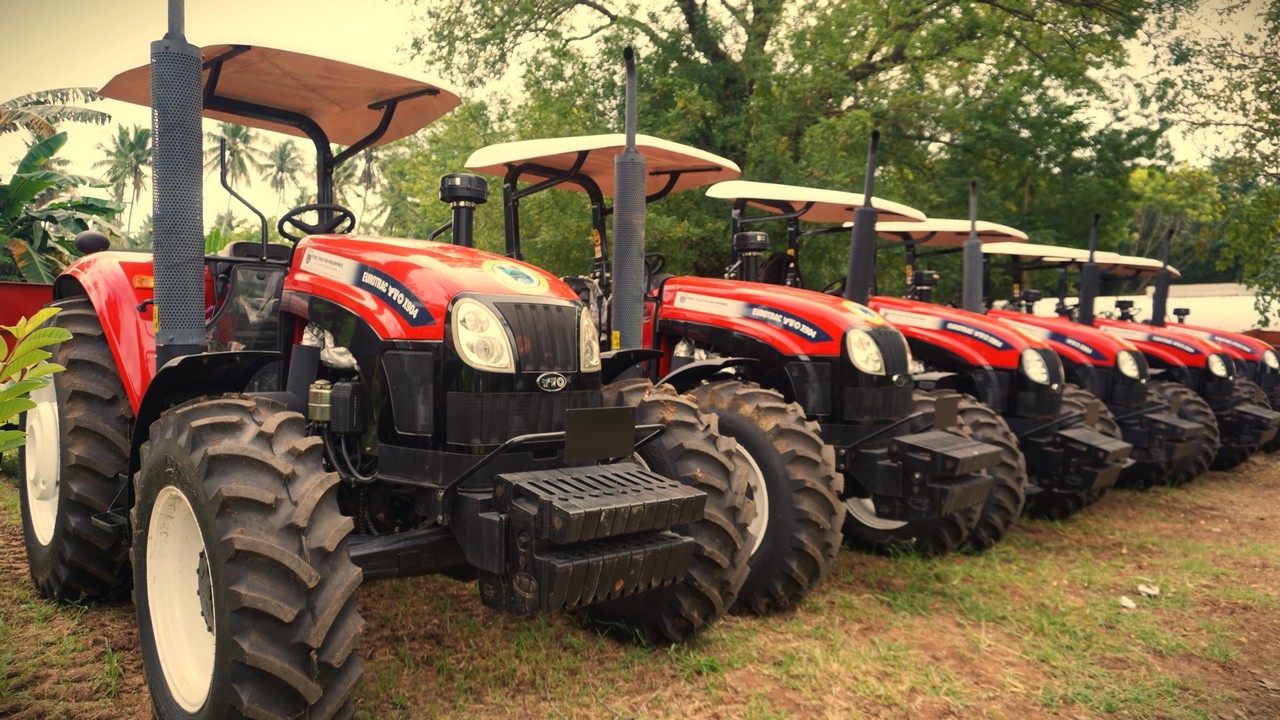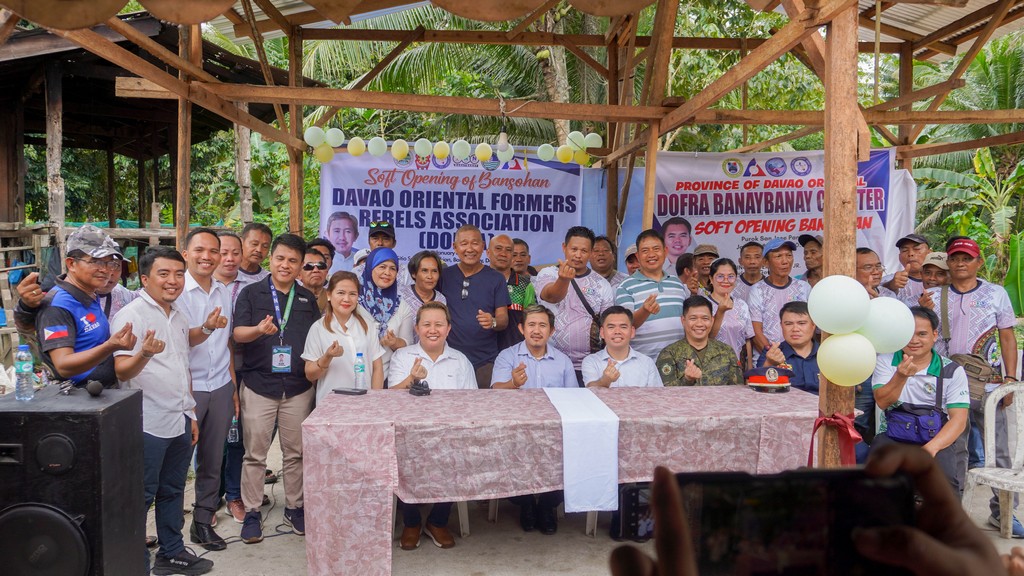BOSTON, DAVAO ORIENTAL – P25 million worth of various livelihood projects have been recently launched in the coastal town of Boston touted to usher former conflict-affected areas here along the path to peace and prosperity.
Set to benefit farmers in eight villages, the P25 million fund is split into five subprojects which are abaca industry development with a funding allocation of P5 million; falcata industry with P8 million; livelihood support with P3 million; oil palm industry with P4.7 million; and livestock industry with P4.4 million allocation.
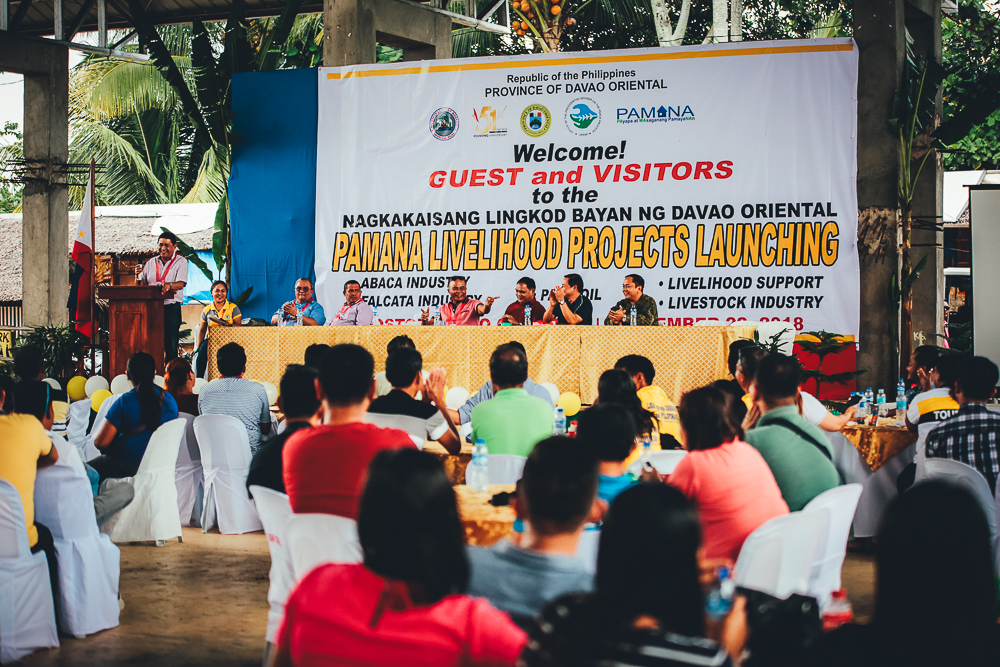
Funded under the Payapa at Masaganang Pamayanan or Pamana program of the Office of the Presidential Adviser on Peace Process (OPAPP), the newly launched livelihood projects are also part in the sustainability strategy of the Provincial Government’s flagship program Nagkakaisang Lingkod-Bayan ng Davao Oriental Barangay Outreach Caravan that converges resources and support of development partners in the effort to build true and lasting peace.
“While the caravan’s provision of services in the villages is only good for a day, the Provincial Government, through the livelihood projects, reinforces sustainable development in the communities,” said Governor Nelson Dayanghirang.
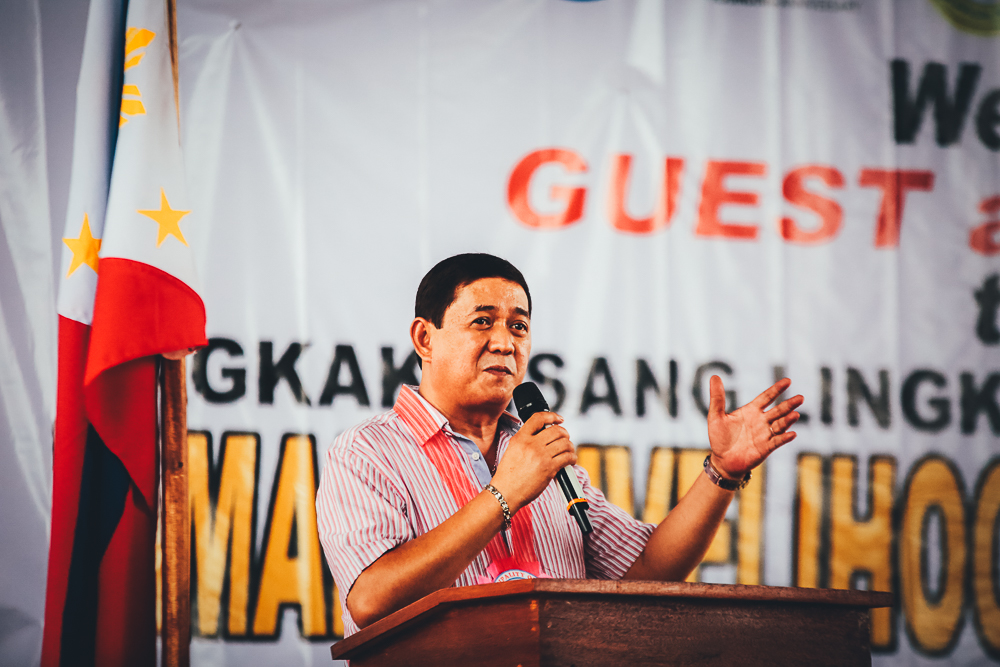
The Governor, who led the launching activity on Thursday, November 22, said that these livelihood projects aim to open up wider opportunities to communities while getting more people out from the clutches of poverty which is considered the main reason that lead people to insurgency.
Project Components
During the launching activity, participants composed of barangay officials, tribal chiefs, and farmers were given orientation on each of the project set for implementation.
For the abaca industry, Provincial Governor’s Office Chief of Staff and Pamana Focal Person Ednar Dayanghirang explained that the program involves four components which are abaca disease eradication program, nursery development, abaca farm expansion and rehabilitation, and livelihood training support particularly on abaca processing. With a total of 1,106 farmers who will potentially benefit, the abaca development project will cover a total of 2,298 hectares while eyeing another 2,351 hectares for expansion.

Falcata farming is also another promising industry the province hopes to explore. By providing seedlings and trainings on how to properly plant and cultivate, tree farmers in upland villages are encouraged to venture on this highly-lucrative industry.
Oil palm is another high-value commodity which the province eyes to develop into an industry here. Provincial Agriculture Office Head Rotchie Ravelo said that with oil palm having the same requirements as the coconut, it would be easier for farmers to grow and cultivate the crop. Currently, the province has more than 800 hectares planted to oil palm, of which 400 hectares are already productive.

He added that the oil palm industry will help in reviving the local economy which was largely dependent on coconut before Super Typhoon Pablo destroyed large swathes of coconut fields in 2012. Moreover, it will also provide an alternative to farmers amidst the plummeting price of copra in the world market.
Meanwhile, for the livelihood support component, the province encourages farmers’ organizations, cooperatives, and organizations to explore value-added farming. Here, beneficiaries will undergo training programs on processing agricultural produce as well as training on Rural Entrepreneurship Advocacy for Change (Reach) to change mindset and values of farmers from subsistence farming to entrepreneurial farming, thus, would open up more opportunities for them.
While all these are long-term interventions, the projects also include the livestock industry as a short-term intervention. “While farmers wait an average of five years for their falcata and abaca to grow and harvested, it is also important to provide other options to farmers,” said Governor Dayanghirang. Under the livestock industry project, beneficiaries will be given poultry, swine, or goats, among other livestock to raise.
ALONG THE PATH OF PEACE
OPAPP Peace Program Officer Oliver Binancilan said the launched “Pamana” projects are part of the P140 million worth of projects funded by the agency for conflict-affected areas in Davao Oriental. “Our ultimate goal is to foster peace in the communities while gaining people’s support to the government,” he said.
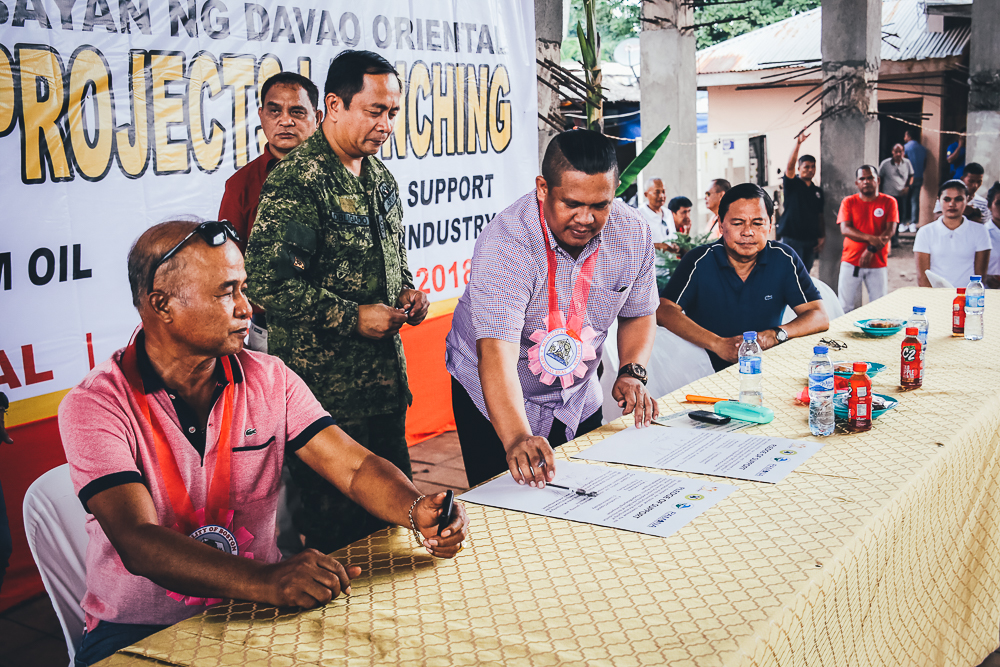
He said that the project is part of the government’s effort to make its interventions felt by the people as it believes that peace can easily be achieved when the people’s needs are met.
Lt. Col. Jacob Thaddeus Obligado, Commander of the Philippine Army’s 67th Infantry Battalion, lauded the endeavor as this will ensure the sustainability of peace and development which all development partners have been working for in a long time. “This supports the efforts exerted by the military in safeguarding the peace,” he said. “With the enemy forces dwindling, it’s only a matter of time before we totally eradicate insurgency,” he added.

He also reminded the community as well as the barangay officials to take their responsibility in making their own communities peaceful and conflict-resilient. “The presence of the military and police are only part of the solution,” he said.
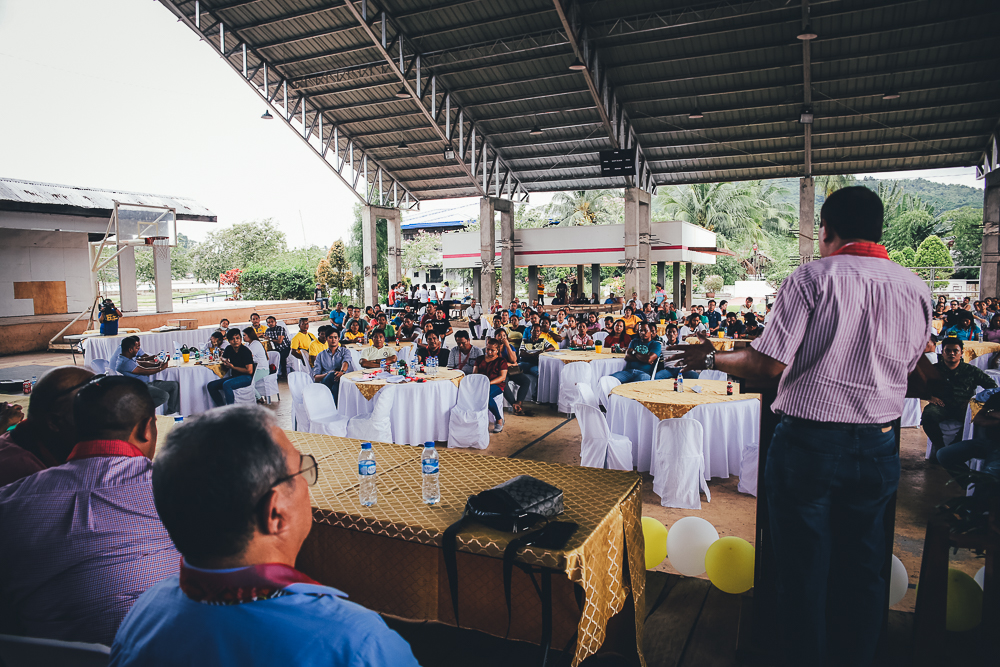
Meanwhile, Governor Dayanghirang said that while fighting poverty is the government’s primary thrust, that the Provincial Government also promotes the culture of responsibility and accountability among the people in the community. “We need to work together for us to achieve our ultimate dream of eradicating poverty,” he said, noting this is the sure path towards creating peaceful and conflict-resilient communities. Photos by Eden Jhan Licayan


